In the vigorous, ongoing debate about the state of America’s patent system — and the state of software patents, in particular — there are some legitimate issues that call for practical solutions, and there is a great deal of peripheral noise. To sort through and identify which is which, BSA and the National Association of Manufacturers co-hosted a packed briefing event this week on Capitol Hill.
Moderated by former Commissioner of Patents Bob Stoll, the panel discussion featured top executives from large and small companies across the software and manufacturing sectors, including Oracle, Microsoft, IBM, Covia Labs and Procter & Gamble.
It was a deep and thoughtful discussion that made several things abundantly clear — starting with the fact that patents play an important role in driving software innovation, which is to the benefit of the whole economy.
Tom Lange, who directs corporate R&D, modeling and simulation at Procter & Gamble, explained how software is used to solve complex design challenges involved in every minute detail of common products we take for granted in our lives. Microsoft General Counsel Brad Smith, Oracle General Counsel Dorian Daley, and IBM Software Group Vice President Neil Abrams explained the enormous investments in research and development that are required to create those kinds of software tools. And David Kahn, CEO of Covia Labs, explained how, for small, startup companies with breakthrough software solutions, patents demonstrate to investors that what they have in front of them is legitimately novel technology with real growth potential.
All of the panelists acknowledged there are clear opportunities to improve the quality of the patents being issued. Similarly, there is a clear need to curb unnecessary, opportunistic litigation of the sort that is the stock and trade of so-called “patent-assertion entities,” better known as “trolls.” So the panelists offered a series of practical reform ideas, such as providing better training, resources and guidance to patent examiners, and improving the transparency of patent ownership to encourage responsible licensing. As Microsoft’s Brad Smith said, “Fix what’s broken, don’t break what’s working.”
Lost in the debate to this point has been the fact that America’s patent system is the best in the world, bar none, and it is undergoing a process of continued modernization and improvement to ensure it remains the best. Most notably, the US Patent and Trademark Office is implementing the landmark America Invents Act of 2011. On a parallel track, the PTO is engaging in an active dialogue with industry to find the best ways to further improve patent quality. Meanwhile, federal courts are refining key aspects of patent jurisprudence.
Critics contend the existence of patent trolls is evidence of fatal rot in the system, which they say requires extreme measures to fix. Some call for complete abolition of software patents. Others want strict limitations on software patents as a class. But the truth is such measures would attack the fundamental rationale for having a patent system, which is to promote exactly the sort of innovation that is exploding in the software sector to the benefit of the broader economy. This briefing event helped bring the real issues — and appropriate solutions — back into focus.

